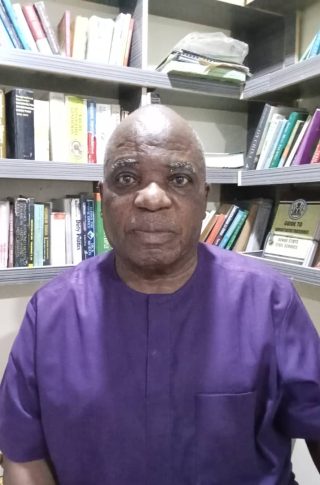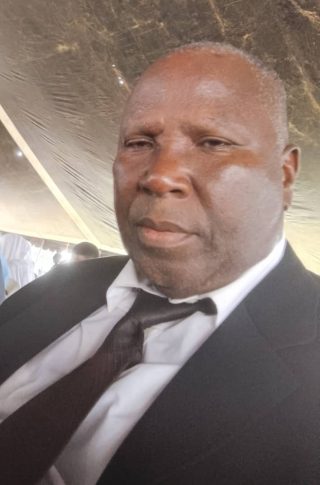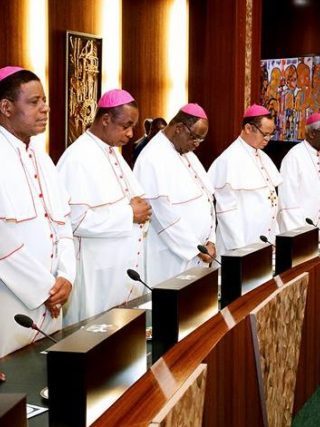
Middle Belt Under Siege: Legal Expert Demands Urgent Firearms Reform to End Massacres and Displacement
As violence continues to engulf Nigeria’s North-Central region, killing thousands and displacing countless others, a leading legal advocate has issued a bold call for constitutional and legislative reforms to empower communities under siege. Redzie Jugo Esq., Team Lead of the Srarina Initiative for Peace, Justice & Development (SIPJAD), made this call at the 20th Anniversary Security Roundtable held at the University of Mkar, Benue State, delivering what many described as the most powerful intervention of the day.
Addressing an audience of policymakers, security experts, academics, and civil society leaders, Jugo warned that Nigeria is at a breaking point, and the federal government’s failure to adequately protect lives has effectively left defenseless communities to their fate.
—
A Nation in Crisis: “Our Communities Are Bleeding”
Jugo began his presentation with a sobering reminder of the grim realities across Plateau, Southern Kaduna, Benue, and other parts of the Middle Belt, where communities now live in daily fear of annihilation.
> “As I speak, families in Plateau State, Southern Kaduna, and across the North-Central region wake each morning uncertain if they will see another sunset,” he said.
He cited recent attacks:
In February 2025, gunmen attacked Majagada 1, Majagada 2, and Tsohon Gann Binawa in Lere LGA of Kaduna State, killing six and abducting sixteen.
In April 2025, over 40 people including two pastors were killed in Hurti Village, Bokkos LGA, Plateau State.
On the night of April 13, 2025, Jugo’s own village—Zike in Kwall District, Bassa LGA—was invaded. By morning, 51 people lay dead after a nearly two-hour siege.
> “Despite prior warnings from the Irigwe Youth Movement, security forces arrived only after the carnage was over,” Jugo said emotionally.
“The next day, the same attackers moved into Benue State, continuing their rampage.”
—
Security Failures and the “Architecture of Abandonment”
Despite Kaduna hosting 11 military formations, it remains one of the most insecure states in the country. Between July and September 2022, over 800 people were kidnapped, with more than 500 cases from Southern Kaduna alone.
> “Former hostages have reported seeing military helicopters hover above their detention camps, only to bomb empty areas nearby—a mere theatrical display while civilians remain exposed,” Jugo lamented.
He criticized the government for what he termed “the architecture of abandonment”, where those who attempt to defend their communities are disarmed and arrested, while attackers move freely.
> “The state disarms the vulnerable while failing to disarm the violators,” he said.
—
Where Terror Thrives: Ungoverned Territories and Systematic Displacement
The attacks are not only murderous but strategic. In Benue and Plateau, armed groups destroy grain reserves, schools, boreholes, health centers, and places of worship, thereby making long-term return and resettlement impossible.
In Zamfara State, bandits now control 725 villages, with 638 more reportedly sacked. Every one of Benue’s 23 local government areas has faced attacks.
According to Jugo, this isn’t random violence—it’s a campaign of territorial conquest.
> “Religion and ethnicity have been weaponized. Entire communities are displaced, and ancestral lands are being occupied,” he warned.
—
Legal Loopholes and the Firearms Paradox
Although Section 33(2)(a) of Nigeria’s Constitution allows for self-defense—including the use of lethal force when necessary—the Firearms Act of 1959 still imposes near-impossible restrictions on legal gun ownership.
> “We’re using a 67-year-old colonial law to restrict citizens from protecting themselves in 2025,” Jugo said.
“Meanwhile, Nigeria is home to 70% of illegal weapons in West Africa.”
A bill to tighten firearms control was read in the Senate in 2022, but critics argue it focuses more on restricting licensed ownership than confronting the free flow of weapons into criminal hands.
> “We have created a system where law-abiding citizens remain defenseless while criminals operate with impunity,” Jugo stated.
—
Global Lessons and Local Examples
Drawing from international experience, Jugo argued that regulated community defense systems can work effectively under proper oversight.
In Israel, security committees in rural communities receive state-backed training.
In Finland, laws recognize differing security needs between rural and urban areas.
In the Czech Republic, gun ownership for self-defense is legal, yet homicide rates remain lower than in countries with stricter gun laws.
Even in Nigeria, there are existing frameworks:
Kano State passed a Security Neighborhood Watch Law.
Katsina State trains Community Watch Corps, while Zamfara established Community Protection Guards.
> “We don’t need to reinvent the wheel,” Jugo said. “We need to align our laws with our realities.”
—
Proposed Blueprint for Reform
Jugo presented a four-point plan to reform Nigeria’s security laws and empower communities:
1. Constitutional Alignment – Protect rights of licensed shotgun owners and ensure laws uphold constitutional rights to self-defense.
2. Community Protection Licenses – Amend the Firearms Act to create special licensing for vulnerable areas, supervised by traditional authorities.
3. State-Level Authority – Give state governors powers to issue community-based licenses, especially in high-risk zones.
4. Training and Accountability – Mandate rigorous training, centralized storage, and oversight of all community-owned firearms.
—
Call to Governors, Traditional Leaders, and Civil Society
Jugo urged Middle Belt governors to convene an emergency forum to demand federal reform of the Firearms Act and adopt community protection frameworks like Kano’s.
He also called on traditional rulers to document their community’s security needs and present proposals to state and federal authorities.
Civil society organizations were tasked to:
Map vulnerable communities and document state failures.
Build inter-ethnic coalitions for peace.
Train local leaders in early warning and conflict resolution.
Challenge discriminatory disarmament laws in court.
Engage international allies to apply pressure on Nigerian authorities.
—
A Moment of Choice
Quoting retired General T.Y. Danjuma, Jugo reminded the gathering:
> “The warning I gave years ago remains valid. Nigerians must rise and defend themselves. The government alone cannot protect us.”
He concluded with a powerful African proverb:
> “When spider webs unite, they can tie up a lion.”
—
The Road Ahead
> “We can continue to mourn, or we can fight for our right to live,” Jugo declared.
“It is time for clarity. It is time for action. It is time to end this era of defenselessness and give our people the legal means to protect themselves.”
As the roundtable closed, one thing was clear—the Middle Belt is no longer asking for protection. It is demanding the right to ensure it.
Reporting by First TV Online
Copyright © 2025

About The Author
You Might Be Interested In











